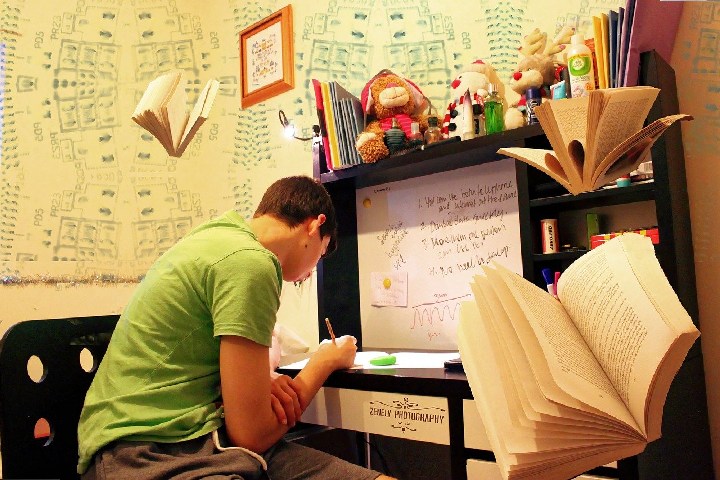Test Anxiety: There are certain techniques that students can use to overcome fear, stress, and lack of sleep that can play a trick on test time.
The exams arrive, and all the nerves and doubts appear on the students’ part and their parents: Will he be well prepared? What if it goes “blank”? The truth is that test anxiety and stress also play a role in scoring in a subject.
Preparing for an exam and knowing how to do it has test anxiety technique. In this sense, psychology provides technologies that have been proven effective, both for high school students and for university students.
1. Can You Help to Study?
“The first thing to be clear is that an adolescent student is not the same as one already at university. The former must be helped to learn to study,” explains Psychopedagogue Gemma Virgili, from the ENAM Center for Psychology.
The others have already gone through that phase, and their main problem is not getting too nervous to the test.
Parents’ job is to guide, not control
Parents should try to be a guide rather than a controller. Make the student see, perhaps from his own experience, the most common mistakes when studying.
The adolescent, above all, has to set the pace of study and even be inflexible. They do not without fail to know what is best for them, due to ignorance and lack of practice of what study habits are.
2. The Keys to Teaching Study Habits
Homework comes first. Faced with the habit of arriving and playing, you have to get used to the fact that the pending tasks come first.
If you come home tired from school, it may take half an hour for a snack, but homework cannot last before bed.
Do not leave the bulk of the study for the exam. You have to read and review what has been given in class every day to settle down little by little.

It is also good to do a short review of everything at the end of the week.
You have to understand that studying a little every day is a “good investment.”
Practice study techniques, such as outlines, summaries, and diagrams.
Practice memorization techniques. The mnemonics are very useful, especially to remember abstract things. For example, we can relate historical dates to other numbers that we know.
Others find it easier to memorize which letter a name begins with, and the rest comes by itself. It consists of trying ways in which our memory knows how to relate better and search memories.
3. Five Rules for Preparing an Exam
With the basic test anxiety techniques well learned, you have to go to the way of facing the tests. Here, too, some rules should not be skipped.
Respect the hours of sleep. You need eight hours of sleep, even before an exam, or especially before an exam. You have to go rest.
Please take into account the circadian rhythm, which is the biological clock that we carry within. For some, it will be easier to study first thing in the morning, and others are more in the afternoon.
You don’t want to review right before the exam. Sleep, in addition to being restorative, serves to consolidate and organize knowledge.
Those last-minute reviews of everything only make us more nervous and perhaps bundle concepts that were already clear.
Take a break every two hours of study. It is convenient to get up, stretch your body, and disconnect for five or ten minutes.
It would help if you had energy. The brain consumes much more than we think. It is good to have energy bars or a snack. In any case, do not eat large meals that cause drowsiness.
4. Techniques to Not Get Nervous
The parents’ traditional phrase, ” do not be nervous; if you have studied, it will be fine” is not effective because it is repeated.
The truth is that some nerves are impossible not to have, and it can even help you feel more proactive when preparing for the test.
What must be avoided is that they end up being a brake. That is a key point since no matter how much you are used to exams at the moment of truth, they always impose.
We must seek positive thinking and not doubt our abilities.
You have to seek self-affirmation and avoid negative thinking, which leads to doubt. If you have studied, the exam does not have to fail.
Before the exam sheet, it is good to take a couple of deep breaths to focus on.

Don’t run to answer the questions. Take your time and re-read them to understand the statement. Many failures are due to an initial error.
5. Benefits of Relaxation
The University of Cambridge found that students who performed mindfulness techniques, fully concentrating on what they were doing, passed the exam period with less anxiety and even with a greater sense of well-being.
What he did not ensure was that his grades were better.
“Mindfulness, like yoga and meditation techniques, is all the same, forms of relaxation that can go well so that anxiety does not overcome us, ” summarizes psychologist.
It can be a good practice to practice any of these techniques, especially if we have insomnia and cannot rest before the exam.
It is a good option before thinking about medications, which would be discouraged if we want to have a clear mind.

